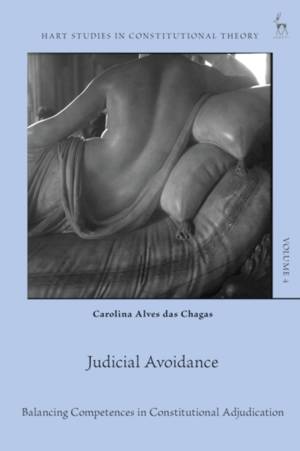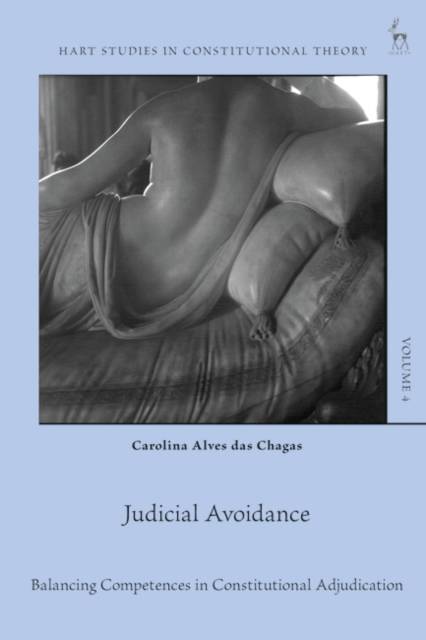
Bedankt voor het vertrouwen het afgelopen jaar! Om jou te bedanken bieden we GRATIS verzending (in België) aan op alles gedurende de hele maand januari.
- Afhalen na 1 uur in een winkel met voorraad
- In januari gratis thuislevering in België
- Ruim aanbod met 7 miljoen producten
Bedankt voor het vertrouwen het afgelopen jaar! Om jou te bedanken bieden we GRATIS verzending (in België) aan op alles gedurende de hele maand januari.
- Afhalen na 1 uur in een winkel met voorraad
- In januari gratis thuislevering in België
- Ruim aanbod met 7 miljoen producten
Zoeken
€ 195,45
+ 390 punten
Omschrijving
This book analyses cases of judicial avoidance: what happens when courts leave some or all of the merits of a case undecided?
It explores examples of justiciability assessments and deferential approaches regarding the decision of another authority and examines legitimacy issues involving judicial avoidance. The reader is presented with answers to two fundamental questions that guide the development of the book:
- Is it legitimate to practise judicial avoidance?
- How could judicial avoidance be practised legitimately?
The conflict of competences, which often emerges in instances of judicial avoidance, is an important book baseline. From this conflict, the book considers and defends the possibility of applying 'formal balancing' to provide a clearer structure of the exercise of justiciability and judicial deference. The 'formal balancing' methodology is based on Alexy's principles theory, and its connection with judicial avoidance represents a significant contribution and novel point in constitutional adjudication.
It explores examples of justiciability assessments and deferential approaches regarding the decision of another authority and examines legitimacy issues involving judicial avoidance. The reader is presented with answers to two fundamental questions that guide the development of the book:
- Is it legitimate to practise judicial avoidance?
- How could judicial avoidance be practised legitimately?
The conflict of competences, which often emerges in instances of judicial avoidance, is an important book baseline. From this conflict, the book considers and defends the possibility of applying 'formal balancing' to provide a clearer structure of the exercise of justiciability and judicial deference. The 'formal balancing' methodology is based on Alexy's principles theory, and its connection with judicial avoidance represents a significant contribution and novel point in constitutional adjudication.
Specificaties
Betrokkenen
- Auteur(s):
- Uitgeverij:
Inhoud
- Aantal bladzijden:
- 176
- Taal:
- Engels
- Reeks:
Eigenschappen
- Productcode (EAN):
- 9781509961498
- Verschijningsdatum:
- 24/08/2023
- Uitvoering:
- Hardcover
- Formaat:
- Genaaid
- Afmetingen:
- 156 mm x 234 mm
- Gewicht:
- 417 g

Alleen bij Standaard Boekhandel
+ 390 punten op je klantenkaart van Standaard Boekhandel
Beoordelingen
We publiceren alleen reviews die voldoen aan de voorwaarden voor reviews. Bekijk onze voorwaarden voor reviews.









